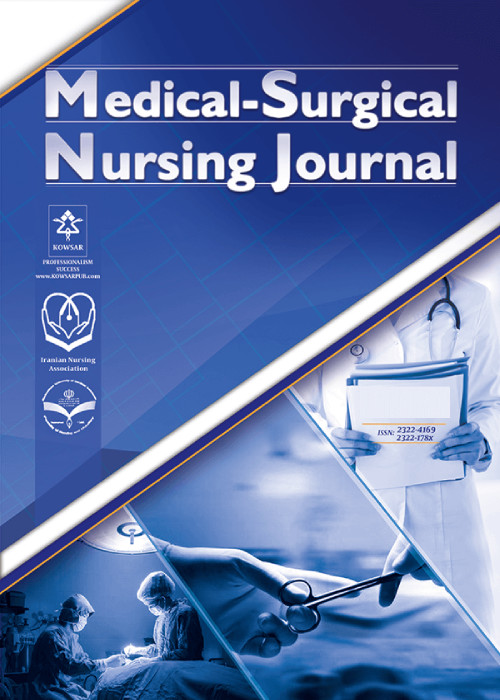A Comparison of the impact of family-centered and patient-centered education methods on attitude toward and adherence to diet and fluid restriction in hemodialysis patients
Author(s):
Abstract:
Background And Objective
One of the major issues in hemodialysis patients is adherence to diet and fluid restriction. In order to reduce the adverse consequences of the disease and improve quality of life, educating these patients is of great importance. Therefore, the present study was conducted in order to compare the impact of two methods of education (patient-centered and family–centered) on attitude toward and adherence to diet and fluid restriction in hemodialysis patients. Materials And Method
This clinical trial was performed on patients referred to the hemodialysis ward of hospitals affiliated with Tehran University of Medical Sciences, Iran, during May to October 2012. Through purposive sampling method, 60 patients were selected and randomly assigned to two groups; patient-centered (n = 30) and family-centered (n = 30). Patients’ attitude toward and adherence to diet regime and fluid restriction were assessed using a researcher-made self-report questionnaire in 3 stages (before the intervention, and 2 and 4 weeks after the intervention). The reliability and validity of the questionnaire were approved. Data analysis was performed using SPSS software version 16 and independent t-test, chi-square, Fisher’s exact test, and repeated measures ANOVA. Results
Before the intervention, the findings showed no significant difference between the 2 groups in terms of adherence to diet and fluid restriction. In the second week after the intervention, mean adherence to diet in the family-centered group was significantly higher than the patient-centered group (P = 0.010). Moreover, at the end of the second (P = 0.001) and fourth weeks (P = 0.002), the attitude toward adherence to diet and fluid restriction was more positive in the family-centered group, in comparison to the patient-centered group. Conclusion
Family-centered education is more effective on patient adherence to the treatment regimen. Thus, it is recommended that family-centered educational interventions be performed.Language:
Persian
Published:
Iranian Journal Of Medical - Surgical Nursing, Volume:3 Issue: 4, 2015
Pages:
195 to 202
magiran.com/p1385198
دانلود و مطالعه متن این مقاله با یکی از روشهای زیر امکان پذیر است:
اشتراک شخصی
با عضویت و پرداخت آنلاین حق اشتراک یکساله به مبلغ 1,390,000ريال میتوانید 70 عنوان مطلب دانلود کنید!
اشتراک سازمانی
به کتابخانه دانشگاه یا محل کار خود پیشنهاد کنید تا اشتراک سازمانی این پایگاه را برای دسترسی نامحدود همه کاربران به متن مطالب تهیه نمایند!
توجه!
- حق عضویت دریافتی صرف حمایت از نشریات عضو و نگهداری، تکمیل و توسعه مگیران میشود.
- پرداخت حق اشتراک و دانلود مقالات اجازه بازنشر آن در سایر رسانههای چاپی و دیجیتال را به کاربر نمیدهد.
In order to view content subscription is required
Personal subscription
Subscribe magiran.com for 70 € euros via PayPal and download 70 articles during a year.
Organization subscription
Please contact us to subscribe your university or library for unlimited access!



